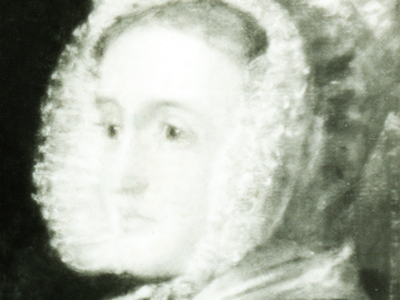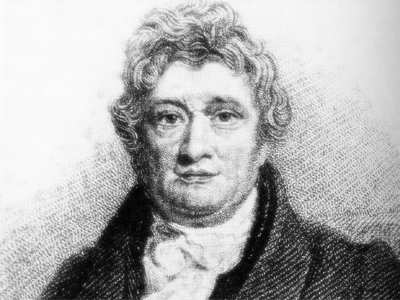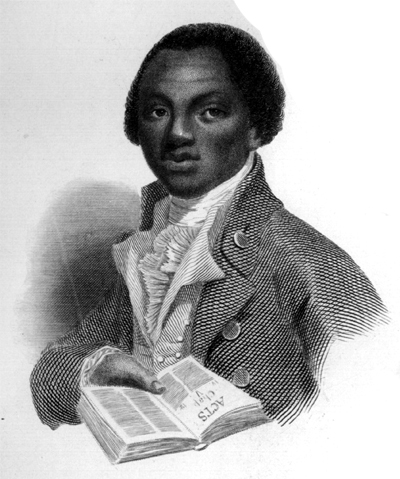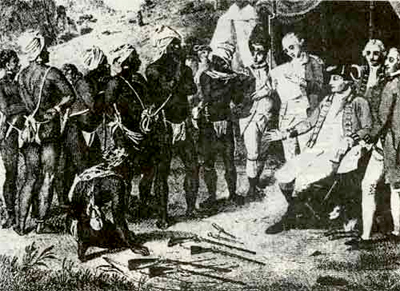|
Anti-Slavery Movement
"No man can serve two masters."
Sam Sharpe
|
Background
The incredible profitability of the slave trade, and consequently the strength of the pro-slavery lobby meant that the anti-slavery movement didn’t emerge as a strong political force until the late 18th century. Early stirrings in the 1760s saw Granville Sharp seeking a definitive answer on the status of Africans on English soil, culminating in the Somerset case of 1772, which concluded that no slave could be removed from England against his or her will and once on English soil, Africans were considered ‘freed’. In 1783, Olaudah Equiano brought the case of the slave ship Zong to Sharp’s attention. The captain of the Zong had thrown 133 Africans overboard in order to claim the insurance money for lost property. The case was argued as such, rather than as a case of mass murder. The publicity it engendered further illustrated the cruelty of slavery and the slave trade.
|
 Mary Anne Rawson, abolitionist from Sheffield.
Hundreds of thousands of British people showed their opposition to the slave trade and slavery, by attending meetings, signing petitions, and buying publications.
|
|
In 1783, the first petition against the slave trade was presented to Parliament by 300 Quakers. In 1785, Thomas Clarkson, then a student at Cambridge University, entered a Latin essay competition that would change his life. The subject he chose to write on was whether ‘it was lawful to enslave the unconsenting’ and his essay on the slave trade won a prize and began his lifelong campaign to bring an end to slavery. In 1787 Clarkson, Sharp and a number of the petitioning Quakers founded the Committee for the Abolition of the Slave Trade. William Wilberforce, MP for Hull was asked to become the group’s Parliamentary representative, and made his first speech against the trade in May 1789. Clarkson worked hard to raise the Committee’s public profile. He travelled around England promoting the cause, researching, through talking to sailors and others involved in the slave trade, and visiting the ports to obtain equipment used on slave ships – handcuffs, leg irons and thumbscrews, to display at public meetings.
|
 Abolitionist Thomas Clarkson – see text
© Anti-Slavery International
|
In 1787, Ottobah Cugoano’s Thoughts and Sentiments on the Evil and Wicked Traffic of the Slavery and Commerce of the Human Species, became the first major African contribution to the campaign for abolition in Britain to be published. This gave British readers the authentic voice and experience of a former slave. Abolitionists encouraged people not to consume sugar that was produced by enslaved people in the West Indies. More than 300 petitions were sent to parliament from England and 187 from Scotland. By the 1780s, Olaudah Equiano was well known in abolitionist circles. Captured at age 11 and enslaved in the Caribbean, Equiano served in the Seven Years War as a boy, bought his freedom, participated in an expedition to the Artic, and exposed the scandal of the Zong ship. After a disastrous involvement in the Sierra Leone repatriation project in 1788, Equiano began to challenge the system of slavery through his correspondence in newspapers, and through his book The Interesting Narrative of Olaudah Equiano, or Gustavas Vassa, the African.
|
 Abolitionist Olaudah Equiano – see text
© Anti-Slavery International
| |
Wilberforce presented his first bill to Parliament seeking to abolish the slave trade in 1791 – it was defeated by 163 votes to 88. The war against France was a setback for the abolitionist cause – the fact that France had abolished slavery because of the Haitian revolution meant that the proslavery lobby could accuse the abolitionists of being in league with the French. Various Acts were passed to prevent meetings from taking place, and Clarkson’s ill health contributed to the decline of the campaign. By 1806, the human and financial cost of a disastrous attempted invasion of Haiti, a slave rebellion in Grenada in 1795 and a Maroon War in Jamaica, caused growing public concern which questioned whether the slave trade was worth such large scale human and economic sacrifice.
In 1806 the Foreign Slave Trade Act banned British subjects from participating in the slave trade with France or her allies, and on 25 March 1807, the Abolition of the Slave Trade Act was passed.
|
 Jamaican Maroons 1795 – see text
|
Narratives from the Collection
Justice and Mercy recommended particularly with reference to the Slave Trade... Sermon preached before the University of Cambridge by Peter Peckard, Master of Magdalen College
ubstance of the proceedings in the House of Commons on Thursday July 25 1822 on the occasion of two addresses to His Majesty, one moved by Mr William Wilberforce, for preventing the Extension of slavery at the Cape of Good Hope
An address to the inhabitants of Europe on the iniquity of the Slave Trade; issued by the Religious society of Friends, commonly called Quakers in Great Britain and Ireland
An Essay on the slavery and Commerce of the Human species, particularly the African, translated from a Latin dissertation which was honoured with the first prize in the University of Cambridge, for the year 1785
Immediate not gradual abolition; or an inquiry into the shortest safest, and most effectual means of getting rid of West Indian slavery, by Elizabeth Heyrick (London 1824)
An enquiry: which of the two parties is best entitled to freedom? The slave or the slave holder, from an impartial examination of the conduct of each party at the bar of public justice (London 1824)
Report of the agency committee of the anti slavery society, established in June 1831, for the purpose of disseminating information by lectures on colonial slavery (London 1832)
Second Report of the Committee of the society of the mitigation and gradual abolition of slavery throughout the British dominions, read at the general meeting of the society held on the 30th day of April 1825
A caution to Great Britain and Her Colonies in a short representation of the calamitous state of the enslaved Negroes in the British dominions, by Antony Benezet (Philadelphia and London 1767)
A caution to Great Britain and Her Colonies
|
Test Your Knowledge
|

